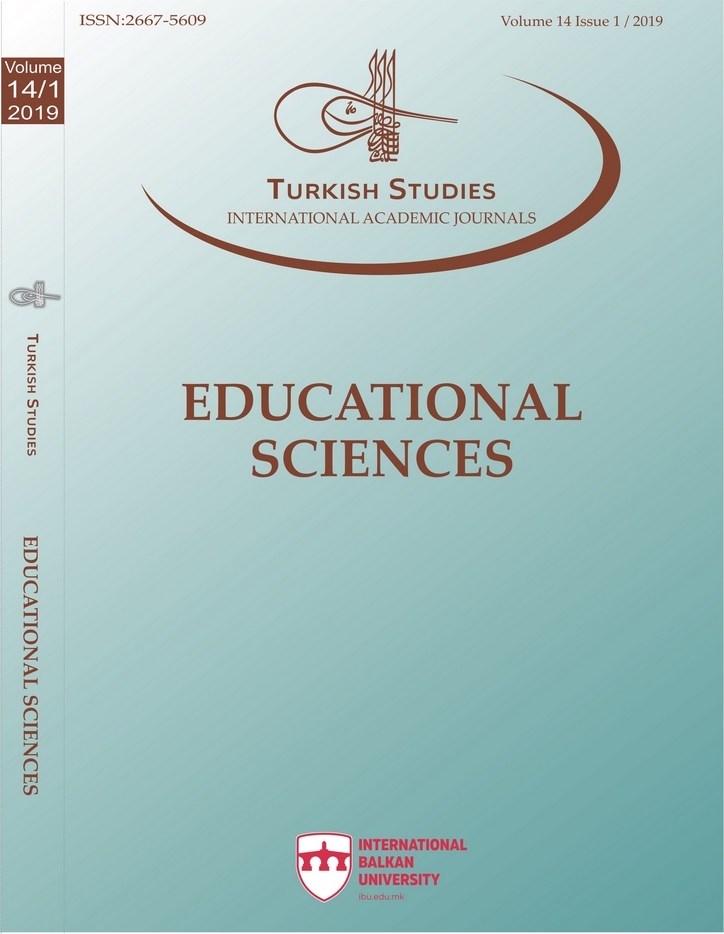THE OPINIONS OF YOUNG PEOPLE ON COOKERY VOCATIONAL EDUCATION: A CASE STUDY
GENÇLERİN AŞÇILIK MESLEK EĞİTİMİNE İLİŞKİN GÖRÜŞLERİ: BİR DURUM ÇALIŞMASI
___
Aktaş, C. (2005). Türkiye’nin turizm gelirini etkileyen değişkenler için en uygun regresyon denklemin belirlenmesi. Doğuş Üniversitesi Dergisi. 6 (2), 163-174.Arıkan, R. (1999). Mesleki Eğitim Şurası ve Mesleki Eğitimde Gelişmeler. Ticaret ve Turizm Eğitim Fakültesi Dergisi, (2), 1-6.
Aymankuy, Y. ve Aymankuy, Ş. (2002). Ön lisans ve lisans düzeyindeki turizm eğitimi veren yükseköğretim kurumlarının bulundukları yerlerin analizi ve turizm eğitimi için öneri bir model. Turizm Bakanlığı Turizm Eğitimi Genel Müdürlüğü, Turizm Eğitimi Konferans Workshop ’unda sunuldu, Ankara.
Cohen, L., Mannion, L. and Morrıson, K. (2007). Research Methods in Education. UK: Routledge, Taylor & Francis Group.
Çetinbaş, H. ve Bektaş, Ç. (2008). Türkiye’de turizm ve ekonomik büyüme arasındaki kısa ve uzun dönemli ilişkiler. Anatolia: Turizm Araştırmaları Dergisi. 19 (1) .
Ertl, H. (2002). The concept of modularisation in vocational education and training: the debate in Germany and its implications, Oxford Review of Education, 28(1), 53–73.
Eşme, İ. (2007). Mesleki ve Teknik Eğitimin Bugünkü Durumu ve Sorunlar. T.C. YÖK Uluslararası Mesleki ve Teknik Eğitim Konferansı. Ankara. Web:www.ticaretmeslekliseliler. com/rehberlik/isa_esme.ppt Son erişim tarihi:16 Şubat 2014.
European Commission. (2010). The bruges communiqué on enhanced european cooperation in vocational education and training for the period 2011–2020. 7 December 2010. Bruges.
Europe 2020 Strategy (2018). https://ec.europa.eu/info/business-economy-euro/economic-and-fiscalpolicy-coordination/eu-economic-governance-monitoring-prevention-correction/europeansemester/framework/europe-2020-strategy_en (Accesed on 07/04/2018).
European Neighbourhood Policy And Enlargement Negotiations (2018). https://ec.europa.eu/neighbourhood-enlargement/instruments/overview_en (Accesed on 07/04/2018).
Hacıoğlu. N., Kaşlı. M., Şahin,. S. ve Tetik, N. (2008). Türkiye’de Turizm Eğitimi. Ankara: Detay Yayıncılık.
Hanushek, E.A., Schwerdt, G., Woessmann, L. And Zhang, L. (2015). General education, vocational education, and labor-market outcomes over the lifecycle. The Journal of Human Resources. 52(1):48-87.
Kelle, U. (1995). Computer Aided Qualitative Data Analysis. London: Sage.
Landis, J. R. & Koch, G. G. (1977). The measurement of observer agreement for categorical data. Biometrics, 33(1), 159-174.
Moodie, G. (2002). Identifying vocational education and training. Journal of Vocational Education and Training. 54(2), 249-266.
Pieck, E. (2011). Using a different lens to look at technical training. Norrag News NN46 (September).
Powell, L. (2012). Reimagining the purpose of VET – Expanding the capability to aspire in south african further education and training students. International Journal of Educational Development. 32, 643-653.
Ryan, P. (2001). The school-to-work transition: a cross-national perspective. Journal of Economic Literature. 39(1):34–92.
Sezgin, S., İ. (2009). Mesleki ve Teknik Eğitimde Program Geliştirme. (5. Baskı). Ankara: Nobel Yayın Dağıtım.
TÜROFED. (2013). Turizm Raporu, Türkiye Otelciler Federasyonu, 3 (7).
UNWTO. (2013). Tourism Highlights, Edition (İngilizce), Word Tourism Organization.
Ünlüönen, K. ve Boylu, Y. (2005). Anadolu otelcilik ve turizm meslek liselerinde öğrenim gören öğrencilerin beklenti ve algılamalarındaki değişimin karşılaştırılması (2000 – 2001 ve 2003 – 2004 öğretim yılları). Milli Eğitim Dergisi,33(166).
World Travel & Tourism Council. (2013). Economic Impact of Travel & Tourism 2013 Annual Update: Summary
Yıldırım, A. ve Şimşek H. (2000). Sosyal Bilimlerde Nitel Araştırma Yöntemleri. Ankara: Seçkin Yayınları.
Yin, R. K. (2012). Applications of case study research (Third Ed.). London: Sage Publications Ltd.
Zimmermann, Klaus F., Biavaschi, C., Eichhorst, W., Giulietti, C., Kendzia, M.J., Muravyev, A., Pieters, J., Rodríguez-Planas N., and Schmidl, R. (2013). Youth unemployment and vocational training. Boston: Now Publishers, Inc.
- ISSN: 2667-5609
- Yayın Aralığı: Yılda 6 Sayı
- Başlangıç: 2006
- Yayıncı: ASOS Eğitim Bilişim Danışmanlık Otomasyon Yayıncılık Reklam Sanayi ve Ticaret LTD ŞTİ
SOSYAL BİLGİLER ÖĞRETMENLERİNİN YENİLİKÇİ SOSYAL BİLGİLER ÖĞRETMENİ VE EĞİTİMİ ALGILARI
Necati TOMAL, HİLMİ DEMİRKAYA, Elif IŞIK DEMİRHAN
AN ANALYSIS OF SECONDARY SCHOOL STUDENTS’ ATTITUDE TOWARDS READING IN TERMS OF DIFFERENT VARIABLES
GENÇLERİN AŞÇILIK MESLEK EĞİTİMİNE İLİŞKİN GÖRÜŞLERİ: BİR DURUM ÇALIŞMASI
GÜNCEL YAKLAŞIMLAR ÇERÇEVESİNDE MÜZİKSEL YARATICILIK VE DEĞERLENDİRİLMESİ
ÖĞRENCİLERİN “DEĞER” KAVRAMINA YÖNELİK ALGILARININ METAFORLAR ARACILIĞIYLA BELİRLENMESİ
Gökçen GÖÇEN, Tuğba Yılmaz BİNGÖL, Nihat ARSLAN, Nihan SÖLPÜK TURHAN, İSA KAYA, Belgin PARLAKYILDIZ
POLİTİK TAKTİKLER ÖLÇEĞİ – ÜNİVERSİTE / FAKÜLTE VERSİYONUNUN GELİŞTİRİLMESİ
THE DEVELOPMENT OF AN ATTITUDE SCALE FOR EDUCATIONAL GAMES: THE STUDY OF VALIDITY AND RELIABILITY
Gül Şebnem ALTUNER ÇOBAN, Emine BOZKURT, Adnan KAN
OKUL RİSKLERİNİ DEĞERLENDİRMEYE YÖNELİK ÖLÇEK GELİŞTİRME ÇALIŞMASI
